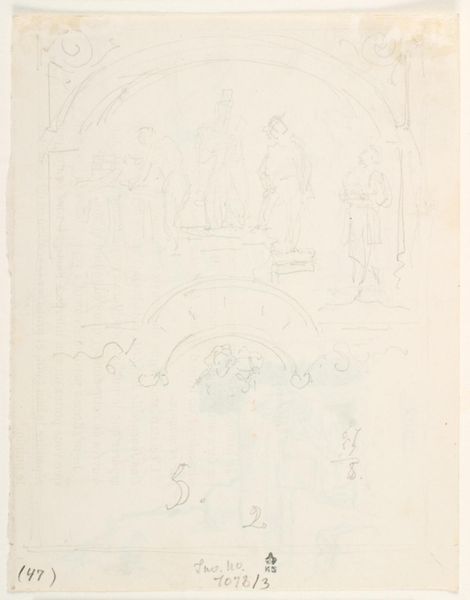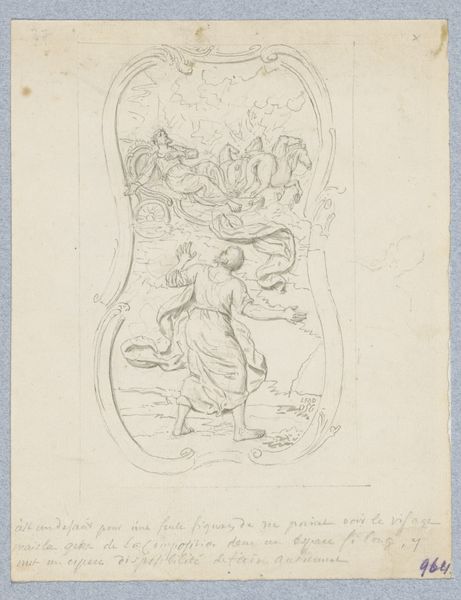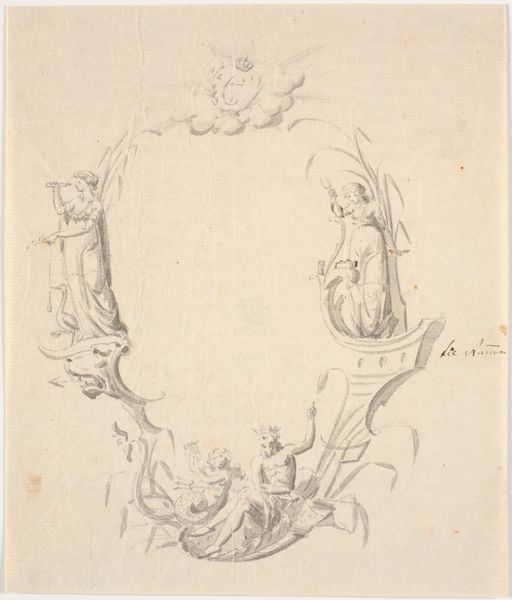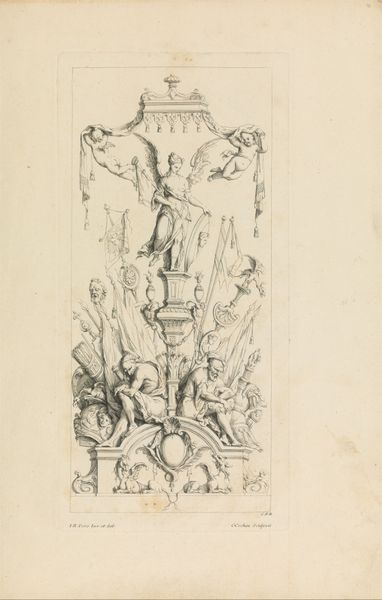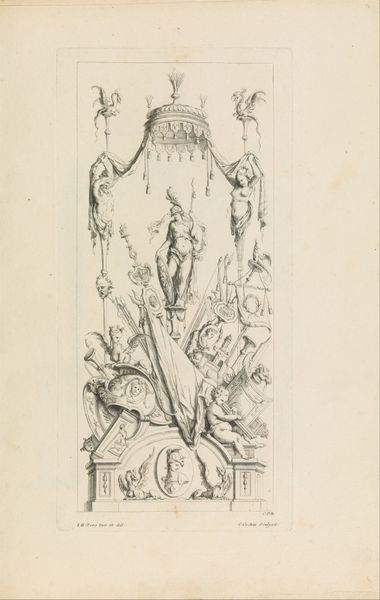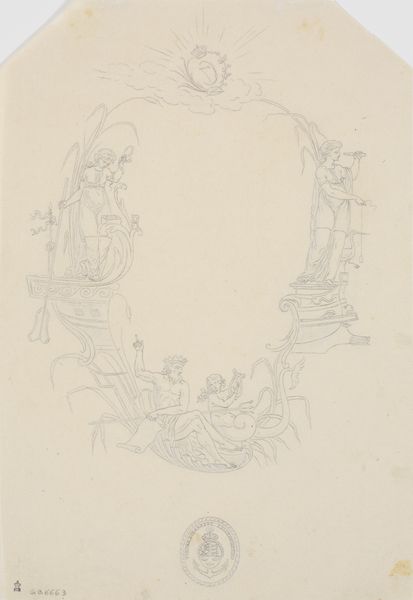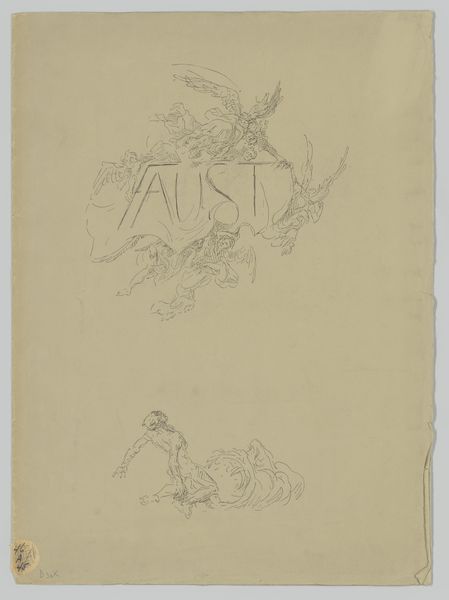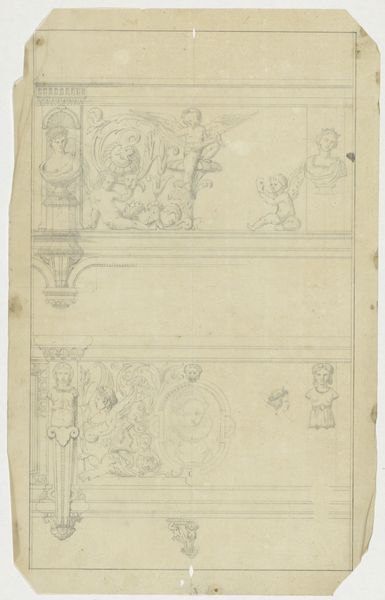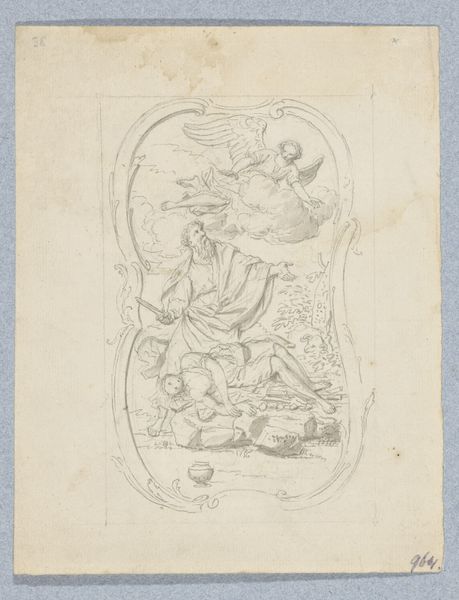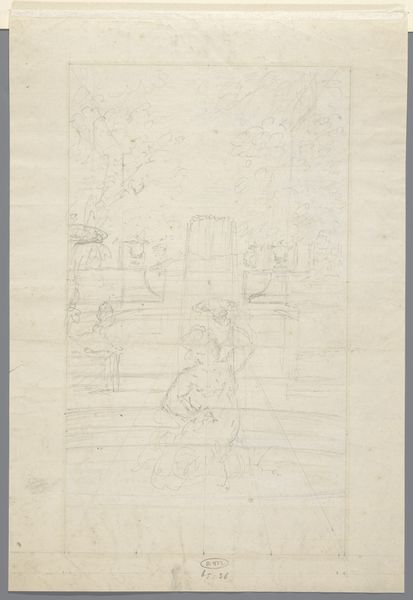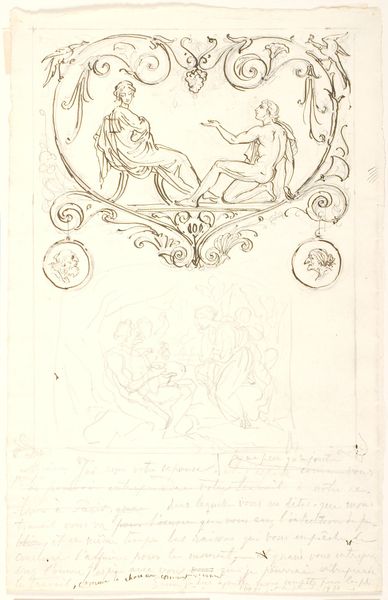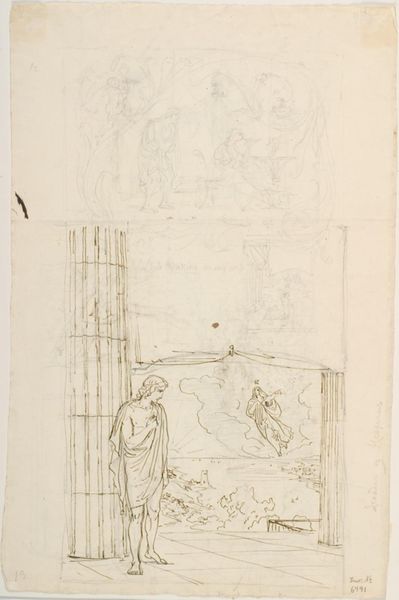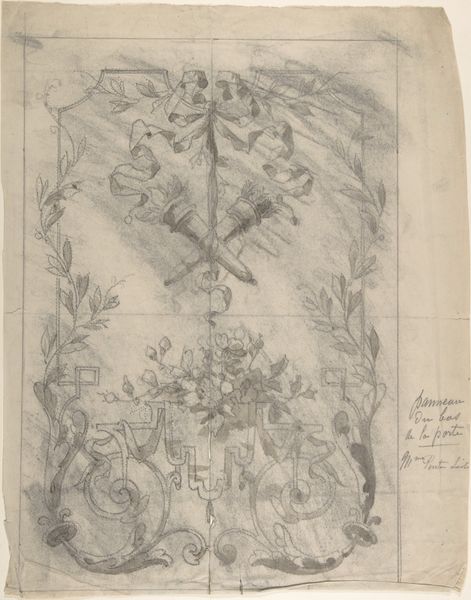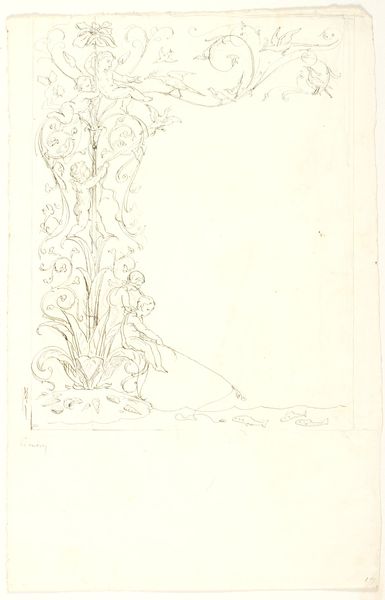
Om du vælter dig paa dit ensomme Leje, om du kaster dig fra højre til venstre... intet vil det baade dig... 1860
0:00
0:00
Dimensions: 286 mm (height) x 235 mm (width) (bladmaal)
Curator: Before us is a pencil drawing from 1860 by Lorenz Frølich. Its title, quite a mouthful, is "Om du vælter dig paa dit ensomme Leje, om du kaster dig fra højre til venstre... intet vil det baade dig..." Editor: The delicacy of the lines strikes me immediately. It's like catching fleeting thoughts on paper, wisps of smoke given form. There's an undeniable air of melancholy. Curator: Indeed. Frølich, working within a Romantic idiom, frequently explored themes of longing, loss, and the struggle for meaning in a rapidly changing world. Look at the arrangement of the figures—spiraling upwards, yet seemingly trapped within their own isolated spheres. It's a study in the interiority of suffering, isn't it? Editor: It reminds me of theatrical scenography – various characters trapped in separate stages within one large spectacle. Are those scenes depicting despair, you think? The figure ascending stairs looks hopefully towards the characters swirling around a bed ridden person at the very top... is this perhaps about ascension or escaping torment? Curator: Precisely. And we should consider the sociopolitical context of Denmark at that moment. National identity was under intense negotiation, caught between a glorious past and an uncertain future after territorial losses and conflicts. That weight seems to resonate in the drawing’s tone. Consider also Frølich’s relationship to intellectual circles. Kierkegaard's existential anxieties undoubtedly shaped his work, exploring questions of individual responsibility and faith. Editor: You are probably spot on! Perhaps then we see here a rejection of societal cures for an intrinsically existential solitude? Each little stage appears to reflect a person cornered into different acts or roles of despair. Is this commentary perhaps pushing us to seek our truth elsewhere? Curator: I appreciate your seeing those subtle notes in Frølich's romantic narrative. There is the power of art for revealing difficult ideas! Editor: Thanks for sharing all this important information to further appreciate the complexity of this simple and melancholic pencil stroke!
Comments
No comments
Be the first to comment and join the conversation on the ultimate creative platform.
